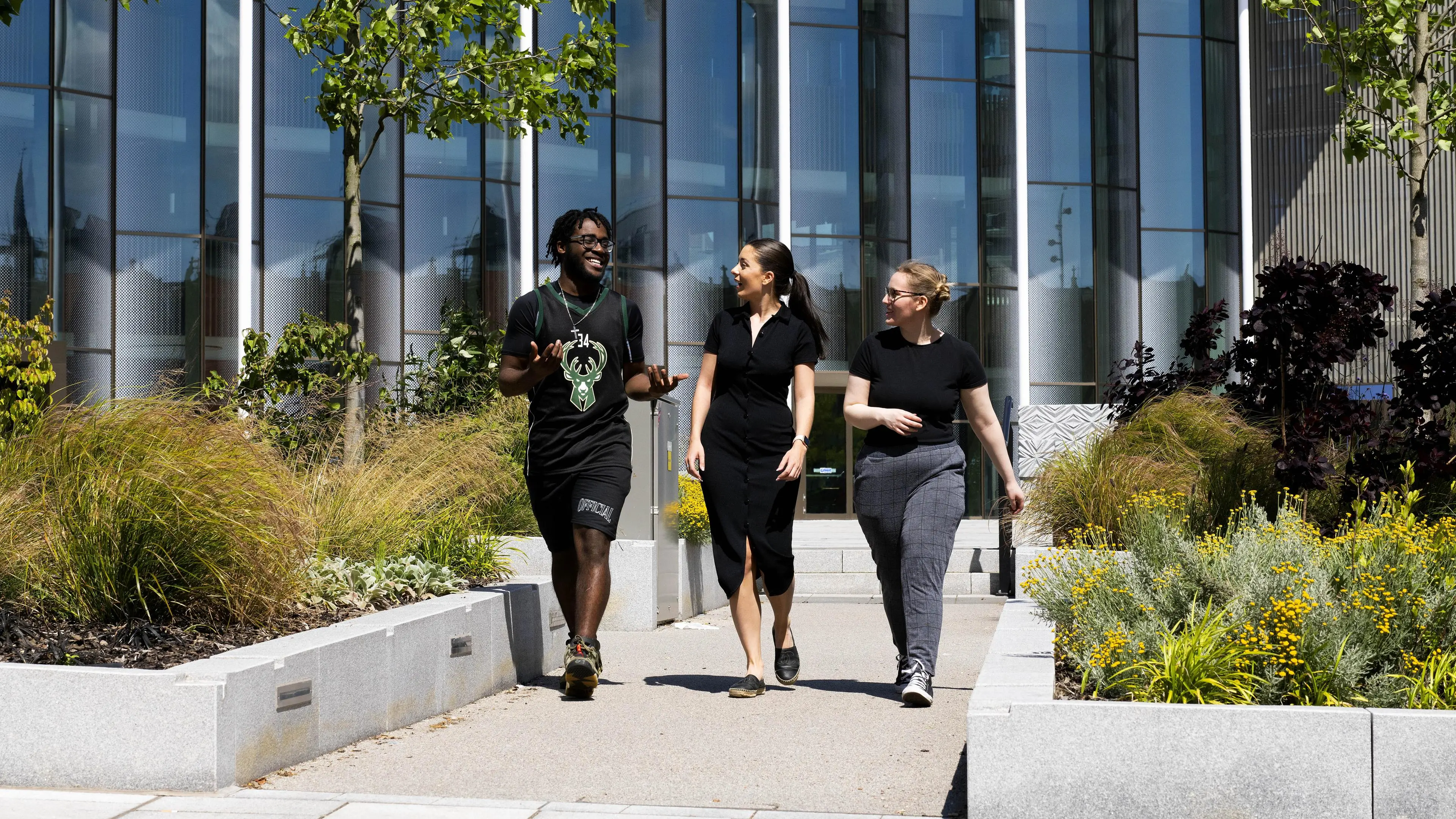UN Sustainable Development Goals
The United Nations Sustainable Development Goals (SDGs) are a comprehensive framework designed to address global challenges.

The goals aim to foster cooperation, guiding society towards a more sustainable and equitable future by 2030.
Through their integrated approach, the goals aim to tackle the root causes of inequality, environmental degradation, and social injustice. The goals promote a holistic vision for development that leaves no one behind.
Adopted in 2015, we are now over halfway through the agreed timescales, but the world remains a long way from achieving these goals.
In the Times Higher Education Impact Rankings, we ranked joint top for our overall score amongst the MillionPlus universities. We are the only MillionPlus university to return against all 17 Sustainable Development Goals.
Staff and students at University of Central Lancashire can support the delivery of the Sustainable Development Goals. This can be achieved through our teaching, research and operations. Our Strategic Plan 2021 to 2028, and associated sub- and enabling strategies, show our institutional commitment to sustainability going forward.
New buildings prioritise energy efficiency and low running costs, aiming for a BREEAM 'Excellent' (Education) classification. For major refurbishments, we aim for a BREEAM 'Very Good' (Education) classification. This includes the feasibility of incorporating renewable technologies.
The 17 UN Sustainable Development Goals
No poverty
Eradicating extreme poverty for all people everywhere by 2030 is a pivotal goal of the 2030 Agenda for Sustainable Development.
Zero hunger
End hunger, achieve food security and improved nutrition and promote sustainable agriculture.
Good health and well-being
Ensure healthy lives and promote well-being for all at all ages. Achieving universal health coverage, and providing access to safe and affordable medicines and vaccines for all.
Our world-leading research in stroke care, maternity care and infant nutrition contributes to this goal.
We ranked 6th in the UK in the Times Higher Education Impact Rankings for this goal.
Quality education
Promote inclusive and equitable quality education. Ensure lifelong learning opportunities for all, enabling free primary and secondary schooling for all boys and girls by 2030. Provide equal access to affordable vocational training. Eliminate gender and wealth disparities, and achieve universal access to quality higher education.
We ranked in the top ten in the UK in the Times Higher Education Impact Rankings for this goal.
Gender equality
Achieve gender equality and empower all women and girls.
Gender equality is a cross-cutting objective and must be a key focus of national policies, budgets and institutions.
We ranked 6th in the UK in the Times Higher Education Impact Rankings for this goal.
Clean water and sanitation
Ensure access to water and sanitation for all. Ensuring that everyone has access to sustainable water and sanitation services is a critical climate change mitigation strategy for the years ahead.
Affordable and clean energy
Guarantee access to affordable, reliable, sustainable and modern energy. Ensuring access to clean and affordable energy, which is key to the development of agriculture, business, communications, education, healthcare and transportation.
Decent work and economic growth
Promote inclusive and sustainable economic growth, employment and decent work for all.
Implementing adequate health and safety measures and promoting supportive working environments.
Industry, innovation and infrastructure
Build resilient infrastructure, promote sustainable industrialization and foster innovation.
Economic growth, social development and climate action are heavily dependent on investments in infrastructure, sustainable industrial development and technological progress.
Reduced inequalities
Reduce inequality within and among countries.
We cannot achieve sustainable development and make the planet better for all if people are excluded from the chance for a better life.
Our innovative and inclusive teaching environment helps open university education open to wider communities, contributing to this goal.
Sustainable cities and communities
Make cities inclusive, safe, resilient and sustainable.
Sustainable development cannot be achieved without significantly transforming the way urban spaces are built and managed.
Responsible consumption and production
Ensure sustainable consumption and production patterns. Ensuring sustainable consumption and production patterns, which is key to sustain the livelihoods of current and future generations.
Climate action
Take urgent action to combat climate change and its impacts.
Every person, in every country in every continent will be impacted in some shape or form by climate change.
Life below water
Conserve and sustainably use the oceans, seas and marine resources.
Healthy oceans and seas are essential to human existence and life on Earth.
Life on land
Sustainably manage forests, combat desertification, halt and reverse land degradation, halt biodiversity loss.
Conserving life on land, protecting and restoring terrestrial ecosystems, sustainably managing forests, combatting desertification, halting and reversing land degradation and stopping biodiversity loss.
Peace, justice and strong institutions
Promote just, peaceful and inclusive societies.
Promoting peaceful and inclusive societies, providing access to justice for all and building effective, accountable and inclusive institutions at all levels.
Partnerships for the goals
Revitalise the global partnership for sustainable development.
A call for action by all countries – developed and developing – to ensure no one is left behind, requiring partnerships between governments, the private sector, and civil society.
We ranked in the top 100 in the UK in the Times Higher Education Impact Rankings. This highlights our commitment to addressing challenges within the Sustainable Development Goals.
